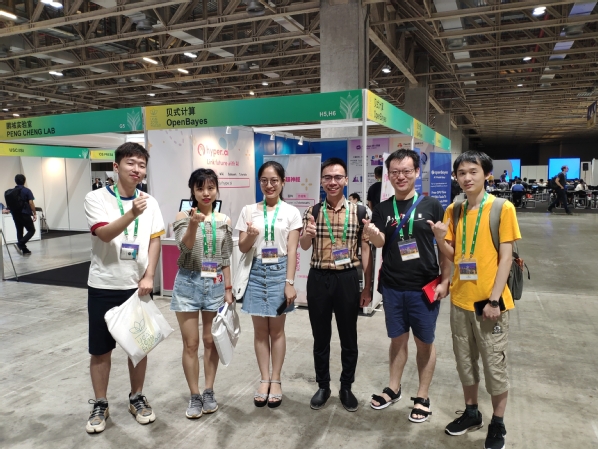Recently, the paper acceptance results of the 19th International Joint Conference on Autonomous Agents and Multi-Agent Systems (AAMAS-2020) and the 24th European Conference on Artificial Intelligence (ECAI-2020) have been announced. Five papers from Professor Zhao Dengji's research group of SIST were accepted. It is worth mentioning that the first authors of the accepted papers are not only postgraduates from SIST, but also undergraduates. They apply traditional algorithmic game theory on social networks and utilize users’ social interactions to overcome new challenges in the global digital economy.
AAMAS, sponsored by a non-profit organization, IFAAMAS, is the most influential conference in the field of multi-agent systems. In 2020, AAMAS received a total of 808 paper submissions, and only 186 papers were accepted, including 3 papers from Professor Zhao Dengji's group.
The paper entitled “Coalitional Games with Stochastic Characteristic Functions Defined by Private Types” for the first time studied the problem of cooperative games where the characteristic function is not known in advance. The work proposes a new reward sharing mechanism for the problem. Different from the traditional model, the new mechanism can ensure that participants are willing to collaborate together while incentivizing them to reveal their private information truthfully. The experimental results show that the mechanism is widely applicable. Professor Zhao is the first author and corresponding author, and the senior undergraduate student Huang Yiqing is the second author.
The paper entitled “Redistribution Mechanism on Networks” focuses on the resource allocation problem on networks without profits. The work for the first time takes users’ social relationships into consideration. Compared to the traditional mechanism, this mechanism can significantly improve the efficiency of resource allocation. Our second year graduate student Zhang Wen is the first author and senior undergraduate student Chen Hanyu is the third author.
Zhang Wen is one of the Class 2018 undergraduates of ShanghaiTech University, continuing her graduate study at ShanghaiTech after graduation, and this time she has three papers accepted by the two conferences as first author. In AAMAS, her second accepted paper is titled “Collaborative Data Acquisition”. The paper studied the big data collection crowdsourcing problem through social networks in order to gain more participants and more data. In this paper, a new method is designed to motivate users to provide their real data while inviting more people to participate. Our first year graduate student Zhang Yao is also the co-author of the paper.
ECAI is one of the three premier conferences in AI, which has strong international influence and is held every two years worldwide. In 2020, ECAI has received a total of 1443 paper submissions, and only 365 papers were accepted. Two papers from Professor Zhao's group were accepted.
The paper entitled “Incentivize Diffusion with Fair Rewards” studied how to incentivize information diffusion on social networks in a fairer way. The information diffusion mechanism based on social networks was first studied by Professor Zhao's team and has widely drawn close attention from international peers. Zhang Wen is the first author and Zhang Yao is the third author.
Furthermore, inspired by Introduction to Algorithmic Game Theory, a course taught by Professor Zhao, three senior undergraduate students delved into how to make the most of a limited budget to maximize the information diffusion through social networks. The results are presented at the paper “Maximal Information Propagation with Budgets” which was also accepted at ECAI. Different from the traditional methods, this paper proposes to utilize the competition between users to incentivize information diffusion, which has very promising applications on social media. Our senior undergraduates Shi Haomin, Si Zilin and Wang Letong and first year graduate student Zhang Yao co-authored the paper.
Students’ achievements are inseparable from the excellent guidance of the professor, and benefit from the unique teaching characteristics, international and research oriented teaching standards of ShanghaiTech. All students can get opportunities to do scientific research during their undergraduate study and build a solid foundation for their further study and research.

Fig. 1:Experimental results for reward sharing mechanisms; Fig. 2: Overview of Network-based Redistribution Mechanism; Fig. 3:Overview of Crowdsourcing Diffusion Mechanism

Prof. Zhao Dengji (3rd from the right), Zhang Wen (3rd from the left), Zhang Yao (1st from the right)

